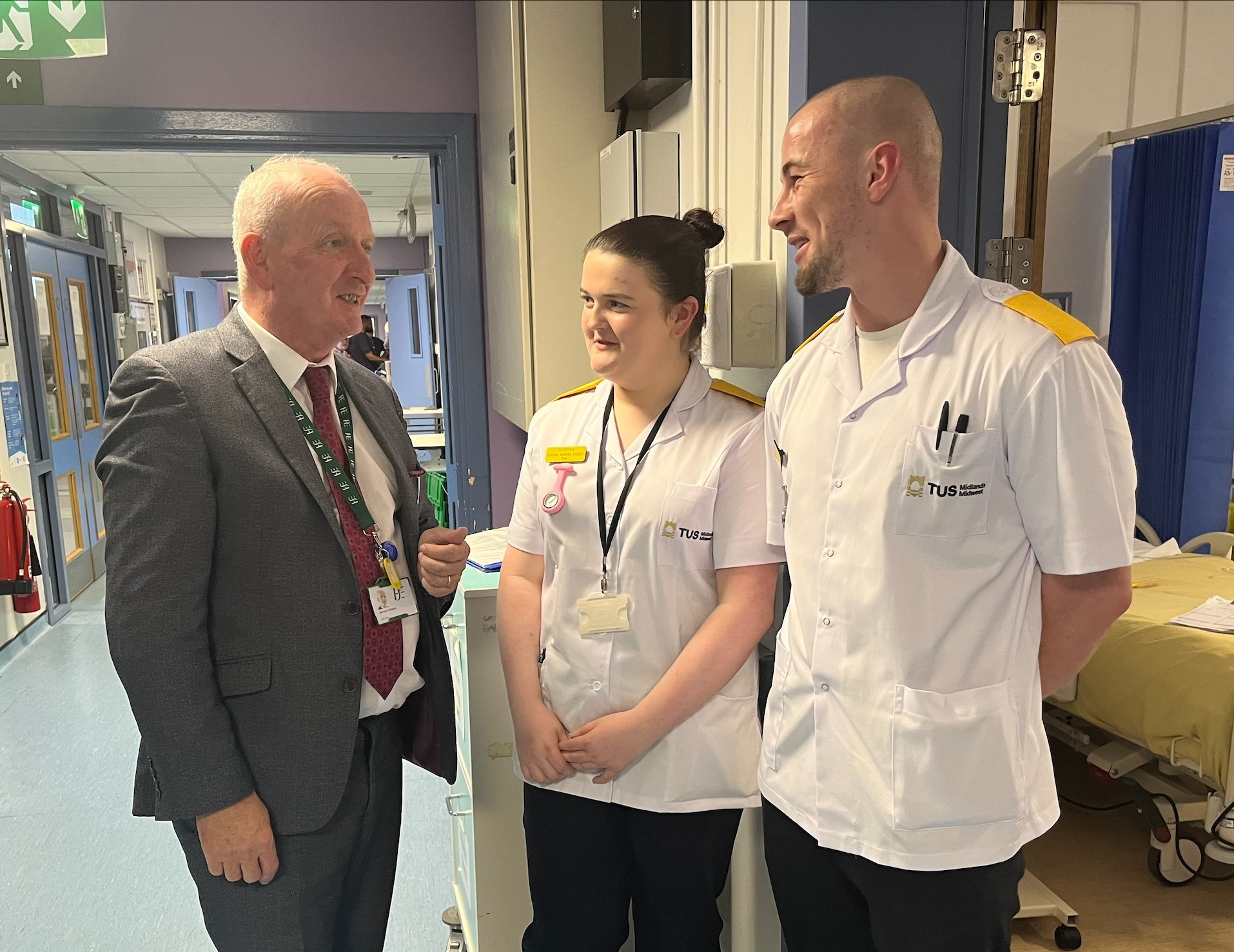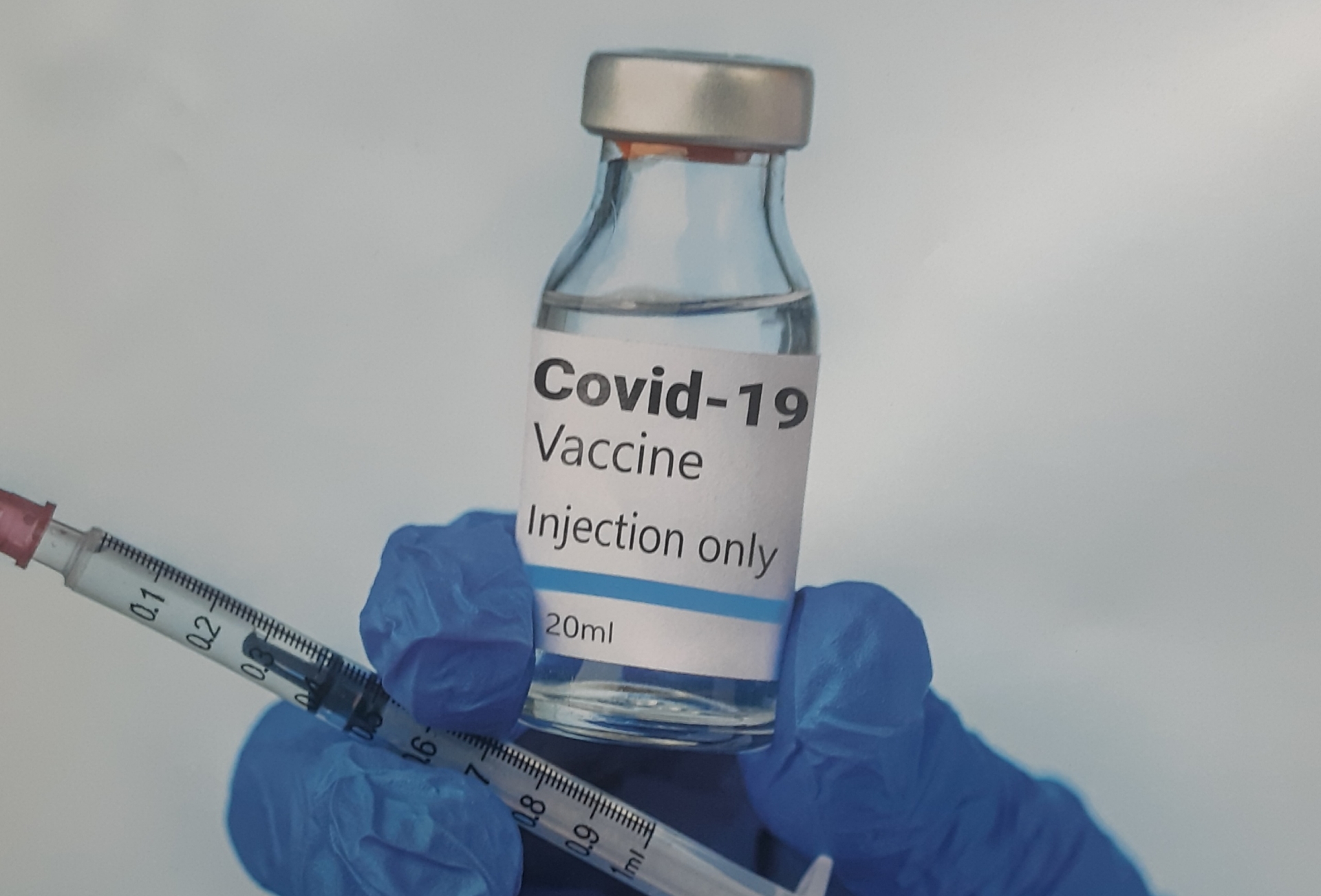
Laois people urged to seek alternative to Emergency Departments in Portlaoise and other hospitals due to the rate of flu and Covid-19 infections
A 'very steep' rise in Covid-19 infections due to a new variant variant and big jump in flu has caused the HSE warn people in Laois and elsewhere to protect themselves and others but viruses are expected in the coming weeks.
A HSE statement issued on December 29 says the number attending Emergency Departments (ED / A&E) in Portlaoise and other hospitals has risen during Christmas week
Some 538 people with flu and 282 with COVID attended hospital EDs nationally this week, an increase from 312 (flu) and 144 (COVID) the previous week. This has caused the HSE to appeal to the public to be aware of and choose the right options for care.
The HSE wants people in Laois and other counties to consider all healthcare options such as Injury Units, GP services and pharmacies before attending hospital Emergency Departments.
As Area Director of Public Health, HSE Dublin and Midlands, Dr Fionnuala Cooney, outlined the situation facing people and services in Laois and other counties.
“We are now seeing a sustained rise in the levels of infection with both COVID-19 and seasonal flu, including among people attending emergency departments and being admitted to hospitals. The new JN.1 variant of COVID is fast becoming the dominant strain. This variant may be more transmissible than previous variants, resulting in more infections. We are still collating data in Ireland and internationally on whether it will result in more illness requiring hospital care but at this time we are not seeing that signal.
"However, with more infection around, there is greater risk some people who are vulnerable could become ill and require hospital care and we still need to protect our vulnerable members of society, children and adults, by doing what we can to reduce the spread of respiratory viruses,” she said.
The HSE says there are currently 30 outbreaks of COVID in hospitals and 24 in nursing homes, again an increase from last week. It says acute hospitals in Portlaoise and elsewhere are as prepared as can be to deal with the expected rise in attendances and admissions over the coming period.
It says hospitals and community services around the country have put a sustained effort into ensuring hospitals are positioned for the traditional post-Christmas demand.
However, the HSE warns that the rise in flu and COVID infection is 'very steep', and it urged the public to attend the ED only for major health emergencies. Use all other options in non-emergency situations. MORE BELOW PICTURE.

PIctured: HSE CEO Bernard Gloster on a visit to Portlaoise hospital earlier in 2023.
Dr Colm Henry the HSE Chief Clinical Officer, was a key member of NPHET when the coronavirus was a pandemic. He is expecting a big impact on hospitals due to Covid-19 and the flu.
“Rates of COVID and flu are rising now and over next few weeks, which will put significant pressure on hospitals and Residential Care Facilities in the short term. Our Emergency Departments are expected to encounter significant pressures as a result and we know from experience that a delayed peak in flu season such as we are seeing now, will inevitably lead to further pressures throughout the healthcare system with heightened risk of outbreaks in all facilities and delays discharging patients to nursing homes or step down facilities if they have flu or COVID.
“This increase in viruses circulating obliges anyone with respiratory symptoms to avoid visiting hospitals and nursing homes if we have respiratory symptoms. Every healthcare setting is assessing the risks locally and monitoring their own local risks, and this may lead them to take additional measures in certain settings, such as the wearing of masks if deemed necessary. Such measures will help protect those who may be more vulnerable to the effects of these infections and avoid impact on services at a very busy time of year.
"There is no room for complacency and I urge people to follow public health advice - stay at home if you have symptoms and get vaccinated - before we reach the peak of flu season in the very near future,” he said.
It also asked that people consider use services such as your local pharmacy, and www.HSE.ie before going to your GP or Emergency Department if you have respiratory symptoms.
The HSE said it is still not too late to get vaccinated: people who have not done so should get vaccinated at their GP or pharmacy. If you are unwell you should stay home until 48 hours after your major symptoms have resolved; avoid visiting people who are more vulnerable if you are unwell, especially avoid visiting hospitals or nursing homes if unwell. People are also reminded people about good infection control practice, including washing hands regularly and covering nose and mouth if you have coughs and sneezes.
The HSE said vaccination remains the best way to reduce the incidence or these respiratory illnesses. The HSE is urging every eligible person to get vaccinated against flu and COVID as soon as possible. People with long-term health conditions, healthcare workers (HCWs) and children aged 2-17 can avail of free vaccination.
See www.HSE.ie for more information on COVID and flu vaccination and to find where to get your vaccines. The site also has advice on common illnesses such as colds, coughs, flu, earache and sore throats and information on how to keep well in winter. MORE BELOW PICTURE.

Further information FROM HSE.
For mild symptoms – Treat at home
Helpful information is available online on treating common winter illnesses, such as coughs, colds and flu. There is also advice about how to protect yourself and others during winter.
You do not need an antibiotic if you have a viral infection. Antibiotics cannot treat viruses. An increase in respiratory illness in children is expected during the winter period. Most can be managed at home with over-the-counter medicines.
You should:
Viral infections are very contagious. They can spread quickly before you notice the symptoms. It can be difficult to stop them spreading to vulnerable people. Most of the time you do not need to visit your GP. But trust your instincts. Bring your child to your GP if you are worried about them.
If you have a chronic condition, review your medicine and management of your chronic disease with your public health nurse (PHN), GP or pharmacist.
Useful tips for patients and families
Non-urgent illnesses – GPs
If your symptoms don't improve over time, or if they worsen, call your GP. Your GP can help with non-urgent illnesses. Make sure you are registered with a GP, check out the GP finder here. Know your urgent GP out-of-hours arrangements and contact details.
If you urgently need to see a GP outside of their clinic hours, you can contact your local GP out-of-hour service. You must make an appointment. There is no drop-in facility.
However, if your symptoms are more severe and you can’t wait for an appointment with your doctor, consider your other options.
Injuries unlikely to need hospital admission – Injury units
Injury units can treat many of the injuries people go to the emergency department for. For example, broken bones, dislocations, and minor burns.
You can get treatment such as x-rays, plaster casts, and wound care in an injury unit.
If they cannot help with a particular problem, they will direct you to where you can get the right help.
For details of locations, opening times, list of injuries and ages that can be treated at an injury unit, go to https://www2.hse.ie/ services/injury-units/
When you arrive at an injury unit, you will be:
There is no charge if you have a full medical card or have a GP referral letter. Otherwise it costs €75 to attend an injury unit.
Life-threatening emergencies – Emergency Departments
Emergency Departments (EDs) deal with life-threatening emergencies. Emergency departments are busy. You may have to wait a long time to be seen. The sickest people are seen first.
Life-threatening emergencies include things like, if someone is breathless; is feeling unwell and getting sicker very quickly; has not peed in over 12 hours and does not need to pee. Other examples include when someone is not feeling well and has become confused and agitated; is very pale with cold hands and feet; is dizzy when they sit up or unable to stand; has developed a rash that does not disappear when pressed down.
Vaccinations
Getting vaccinated is the most effective way of preventing infections. You can get the COVID vaccine if you are 50 and over, immunocompromised and have long-term health conditions. A booster vaccine is recommended during pregnancy.
COVID vaccines are also available for children aged 6 months to 4 years who have a health condition that puts them at high risk of severe illness if they get COVID.
The flu vaccine is recommended if you are 65 and over. The children’s flu vaccine for 2-17 year olds is also available now. The pneumococcal vaccine (PPV23) which protects against pneumonia, septicaemia and meningitis is also available free of charge from participating GPs for people aged 65 and older. Vaccines for these people are free and available from the GP and pharmacy.
Use the HSE pharmacy finder for vaccine clinics here.
Need information and advice on COVID-19? Go to www.hse.ie/coronavirus
Subscribe or register today to discover more from DonegalLive.ie
Buy the e-paper of the Donegal Democrat, Donegal People's Press, Donegal Post and Inish Times here for instant access to Donegal's premier news titles.
Keep up with the latest news from Donegal with our daily newsletter featuring the most important stories of the day delivered to your inbox every evening at 5pm.